How to Properly Clean and Maintain Your Boat’s Engine In 7 Easy Steps
Your boat provides seasons of fun outdoor use in the spring, summer, and fall. How do you keep your boat engine clean and in good condition for use when you would like to use it?
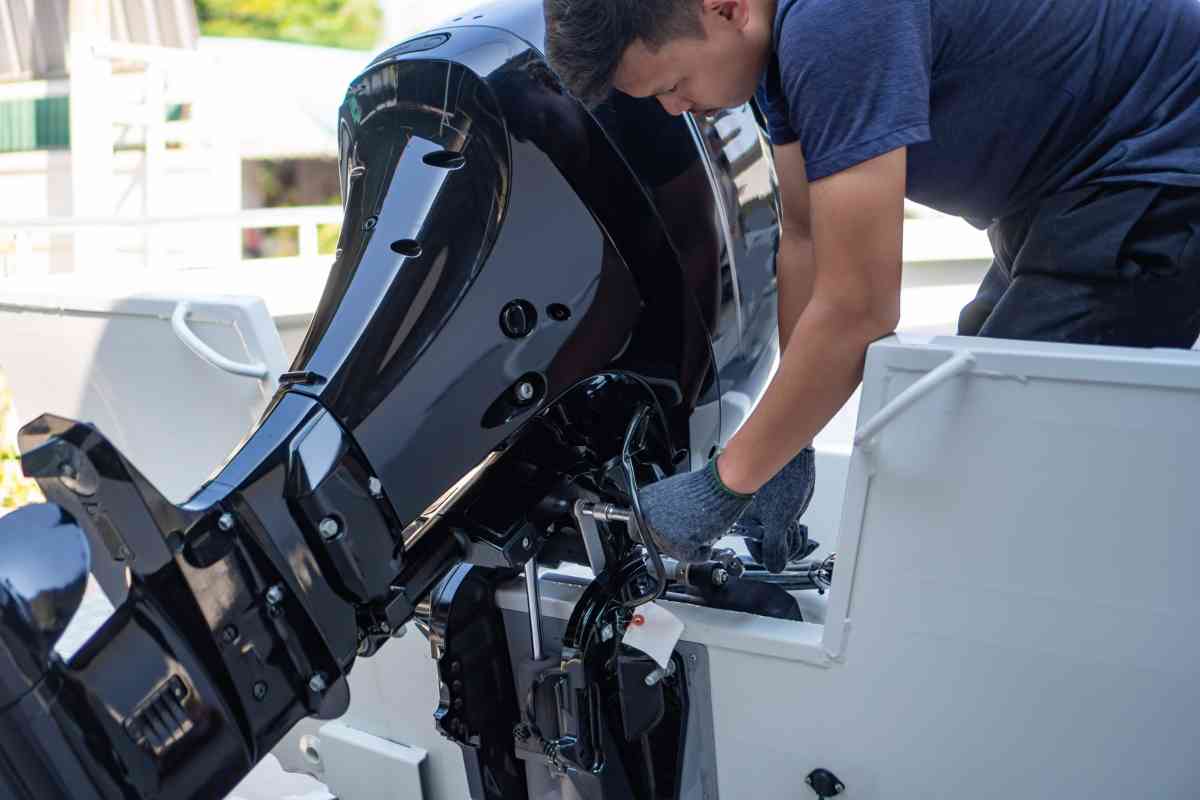
How do you clean and maintain a boat engine?
One of the first actions you want to take to get a nice, clean boat engine is to apply degreaser. This gets the gunk off and makes the rest of the process much easier. Other steps include basic cleaning of the boat engine, in addition to checking on filters and ensuring linkages are properly greased.
We’ll explain the steps to take for the purpose of cleaning your boat engine. We’ll also discuss the importance of cleaning your boat engine on a semi regular basis so that your boat keeps running for years to come.
Need more help with boat maintenance? Check out our guide to the most common boat maintenance tasks!
How to Properly Clean and Maintain boat engine
Let’s walk step by step how to maintain and clean your boat engine.
Your boat engine isn’t much different from a car with the need for regular maintenance and attention, only your boat is only used for part of the year. We suggest either cleaning your boat engine a couple of times per year, or doing so when the engine is rather mucky or has been a lot frequently.
Step 1: Let your boat engine cool down
We assume that you drove your boat somewhere to clean it off, or are cleaning it off prompt after finishing a recent journey.
The bottom line is: your boat engine will be too hot for your touch for at least a few minutes after you stop the engine, so don’t try to clean it yet or it could burn you.
Wait until your boat engine is cool to the touch. If this means finding some shade to leave your boat in, that’ll help it cool down faster. Otherwise, wait a moment, unload your boat, grab a drink, or something while you wait for the engine to be cool enough to work on.
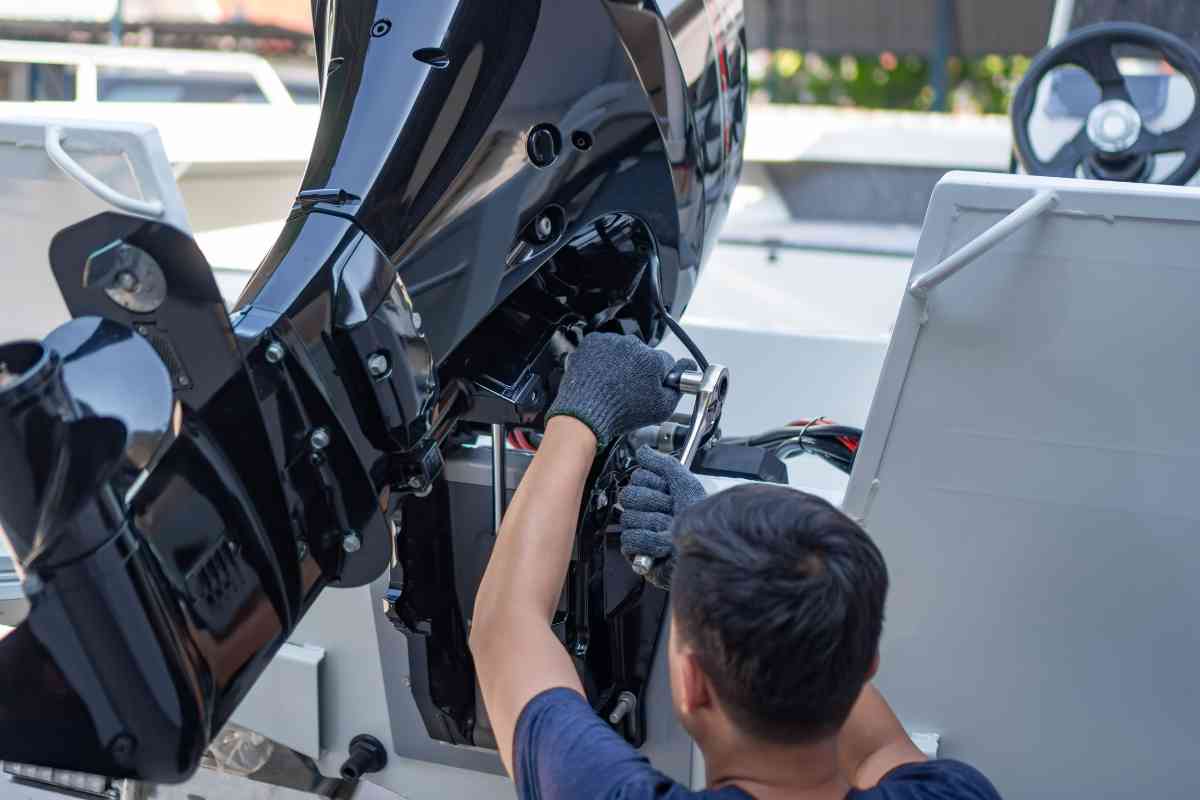
Optional Step 2: Freshwater flush
This step isn’t completely necessary if you already go boating in freshwater, though it still isn’t a terrible idea. If you are a saltwater boater, you will want to give your boat a quick spray down with fresh water to remove the first layer of salt residue from your motor to prevent rust.
Salt is not good for motors and you want to get the fresh stuff off right away.
Step 3: Degreaser
No, we aren’t saying your engine is covered in grease. A boat engine degreaser can make cleaning the rest of your boat way easier simply by loosing up the dirt, grime, and who knows what else attached to your engine while it was sitting halfway under water.
Applying a coat of boat engine degreaser is a great start to making the rest of the task of making your boat clean significantly easier.
You can also get a spray nozzle for this purpose since some parts of the engine might be hard to reach. You can find good degreasers at your local hardware store – and you might quickly learn that the color is often purple.
Degreasing isn’t completely necessary, but you might run out of elbow grease later in the process of boat cleaning if you don’t.
Step 4: Check your filters
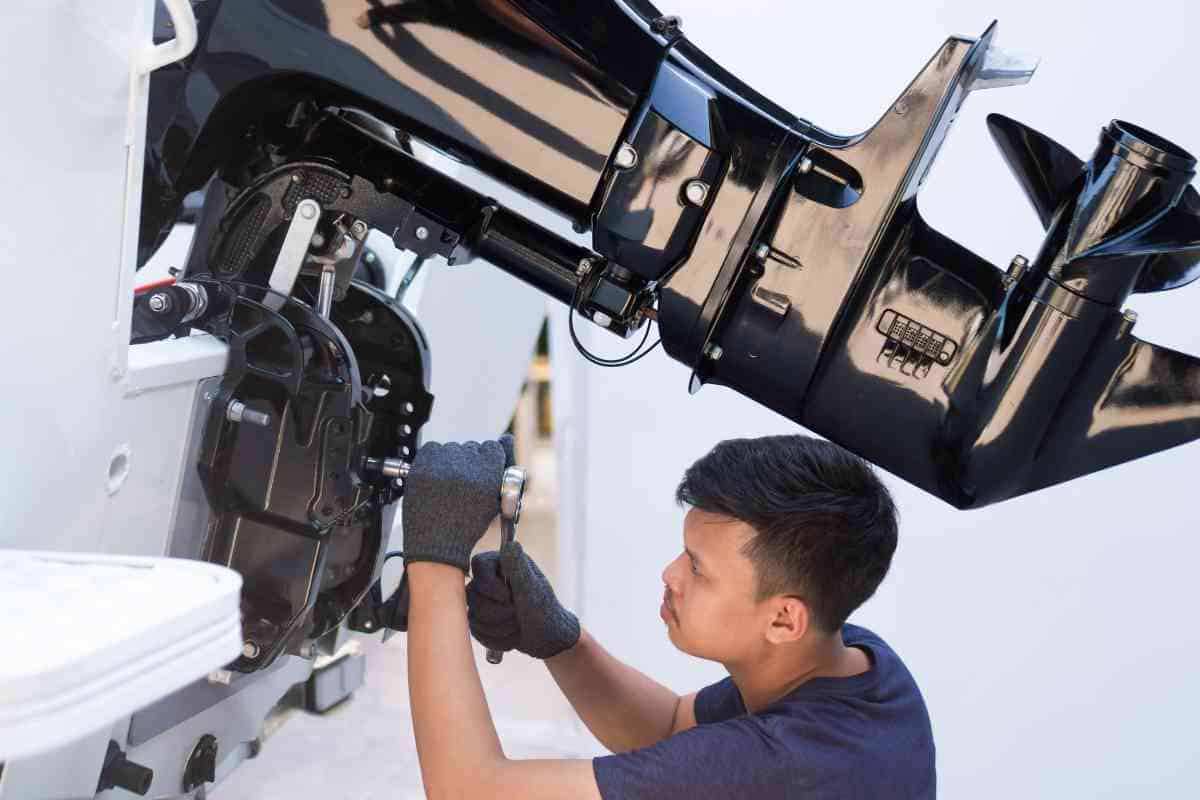
Having proper working filters is more important for your boat engine than it is for your vehicle’s engine – and filters are rather important for both.
Here’s a fact you might not know until you go to replace your filters: An outboard engine can have up to 5 different filters. Much of the reason for having multiple filters is because one can easily get completely full, or have a filter size that isn’t quite right for big or small impurities.
Marine engines are sensitive – and unfortunately, even the ethanol based based used for power many of them can have trace amounts of water in it that can lead to corrosion within the engine.
This is why filters are important: catch the little and big things that came through the fuel tank, gas, and who knows where else.
Make it a routine to check these filters as they are critical to engine performance.
Step 5: Check your intakes
Your filters are typically located near your water intakes since filters are most often associated with removing junk from those intakes.
Check the intakes too for both damage and foreign stuff like fishing line or other debris. You want to make sure these are not clogged because just like poorly running filters, these can have a big impact on performance as they determine the oxygen and fuel content that reaches your boat engine.
Step 5: Check your fuel line
In this case, you are more so checking for clogs and to ensure all the connections look good. This is in part preventative boat engine maintenance. Few things are worse than realizing you have a leaking fuel line while you are in the middle of a big lake.
Step 6: Grease fittings
You’ll want to locate and maintain grease fittings on your outboard engine or boat motor to ensure that parts of the boat motor that need grease to maintain fitting get it. You can find boat motor grease at a hardware or marine supply store.
Step 7: Check the propeller
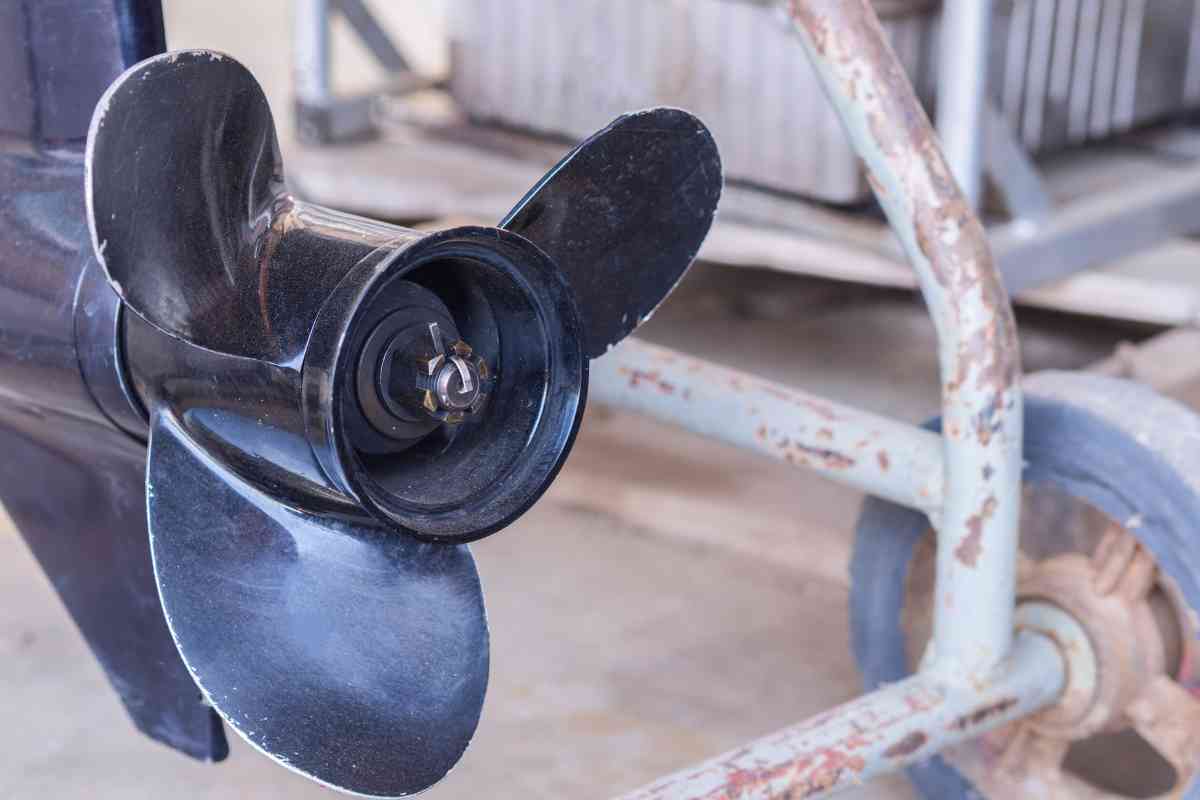
The propeller is a rather important part of the boat exterior part of the engine. Ensure that it is capable of spinning freely in addition to not having cracks or unusual wear.
Also note that the propeller on electronically controlled beats might work a bit differently from those that are not electronics. Check your manual in regards to a proper maintenance schedule.
A few more things to check on the regular within your outboard motor
While most of the above was about cleaning and some basic maintenance to ensure that your boat is free of salt water, we’ll also recommend a few obvious and not so obvious things:
Water Pump
The water pump is important, in part to help keep the engine cool and water out of the boat. Test your water pump and make sure that it runs and pushes water where it should.
If it is running slow or not running, you’ll want to remove the debris causing issues within the water pump impeller. The water pump impeller is an important place to check!
Fuel Line disconnect
This is more so in preparation for the next time you use your boat – especially if it’ll be a few months: disconnect your fuel line so that no more fuel enters the carburetor, then start the boat engine and let it burn off all the excess fuel within the engine and carburetor.
A carburetor that still has fuel in it for too long will become a sore spot because old fuel can get gummy and lodged in the rather small, sensitive carburetor, making your outboard engine hard to start and keep running.
Engine Oil
This one might be kind of obvious. After all, there aren’t many if any engines out there burning gasoline that don’t also use oil Anyway, you’ll want to check the oil for your boat, and replace the oil filter occasionally to remove any junk from those filters. These filters offer the same functions as the filters for the rest of your boat.
Seeing the cleanlines of your oil isn’t much different from a vehicle – ensure that the dipstick shows enough oil present in the pan, and that it’s the right color. Change dirty oil and add some more oil if you need.
Lube
The way we’ll describe lube is a little different from oil, which more commonly goes into a container or pan for a boat. Lube refers to the often less-oil like lubricant that goes on other parts of your outboard motor.
Be sure to check to ensure you are using the right kind of lube. Lube does help remove heat and needs to be a specific kind and viscosity in order to work correctly and not burn out.
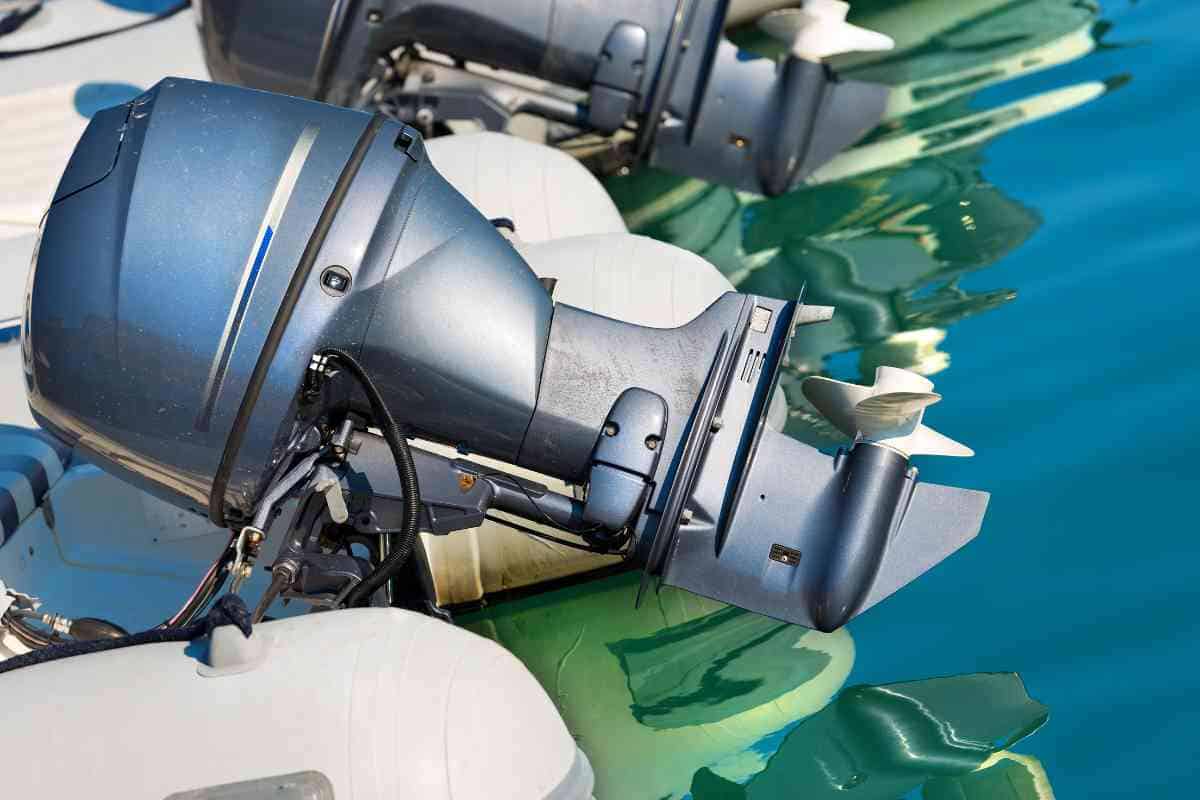
Read the manual
While we can offer some general guidance in regards to what to maintain on your outboard motor and boat, it is more difficult to tell you all the features on your boat that need maintenance, where they are located, and how often to check them.
The best suggestion here is to find out what exactly the manufacturer wants you to do, and how often it is done in the manual. They made the boat – and they know better than anyone else when to change your oil or your filters. They also know how to maintain your fuel lines.
Reading the manual can actually save you money. How? If you think the water pump needs to be replaced, but there is something else you should try, you might save money, for now, on replacing something that didn’t need it.
Why is keeping your boat clean important?
So we listed several things you want to keep clean on your boat and a bit about how to clean them. We write this – and you look it up, because it is important. An outboard motor doesn’t do anything unless dipped into the water; frankly, water isn’t always the cleanest. The propeller can suck things in and get anything from fish to barnacles stuck to it.
A boat that isn’t clean is more likely subject to corrosion and faster wear and tear because small things add up quickly. Especially within the outboard motor! With many so many moving parts within, it’s rather important to ensure the metal and plastic are in good shape.
While a good looking boat is nice, the lack of what we can describe as nature means that the stuff that can harm your boat isn’t readily piling up.
Boats aren’t a small investment. Keeping your boat clean will make your boat engine run for years longer – and with less impact on your wallet than a poorly maintained boat.
Key Takeaways
- Cleaning your outboard engine and outboard motor is essential to keep your boat running
- You’ll want to be sure that you wash and degrease your engine after use with a cleaner to prevent build ups.
- For longer term stops, drain disconnect your fuel line and burn out your carburetor.
- Burn the fuel in the carburetor to avoid potential clogs when you start the boat again.
